Archive | Blog RSS feed for this section
Regional cooperation and integration
 Industry and trade
Industry and trade
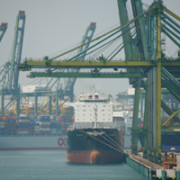 Regional cooperation and integration
Regional cooperation and integration
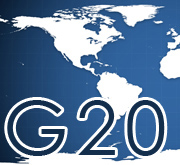 Governance and public sector management
Governance and public sector management
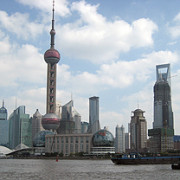 Finance sector development
Finance sector development
 Industry and trade
Industry and trade
 Governance and public sector management
Governance and public sector management
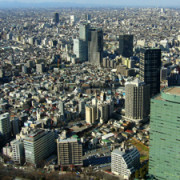 Industry and trade
Industry and trade
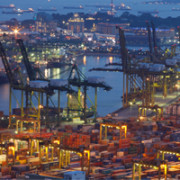 Regional cooperation and integration
Regional cooperation and integration
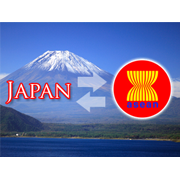 Industry and trade
Industry and trade
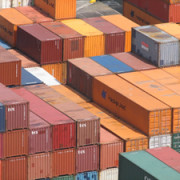
Can the PRC win the hearts and minds of Africa?

As economic power shifts from West to East, one of the key players affecting Asia’s rise is Africa. But as is often the case with Africa, it is often overlooked. So much is written about the rise of the BRICS countries. Indonesia, Mexico, and Turkey have recently been added to the global growth trackers’ lists. But what about Africa?
Government procurement – key element in TPP; Missed opportunity in RCEP?

Government procurement has been treated quite differently in trade agreements initiated by the US than in those that have been led by Asian governments. US-led trade agreements, including the Trans-Pacific Partnership Agreement (TPP), incorporate government procurement commitments as an important element. In contrast, Asian-led trade agreements omit or minimize government procurement provisions. The parties to Asian agreements, such as the Regional Comprehensive Economic Partnership (RCEP), should consider the benefits of including government procurement in their trade pacts.
G20 and international economic policy coordination

When G20 Leaders met in April 2009 they agreed on coordinated fiscal stimulus in response to the unfolding financial crisis. This explicit coordination addressed the concern that any one country’s stimulus would largely flow overseas through the external account, benefitting the global economy but not doing much to boost domestic demand. This concerted stimulus seems to have been successful. In the face of a dramatic collapse in financial systems in much of the advanced world the fiscal stimulus put a floor under contracting GDP. The People’s Republic of China’s (PRC) huge stimulus produced a swift return to 10% growth in 2010.
Why is the PRC showing signs of overheating despite slowing economic growth?

The People’s Republic of China’s (PRC) economy has shown signs of overheating despite a sharp slowdown in economic growth, suggesting that, constrained by the supply of labor, its potential growth rate might have fallen significantly from its past level. With the priorities of the PRC’s authorities shifting from raising economic growth to curbing inflation, they are expected to change their stance on macroeconomic policy, including monetary policy, from easing to tightening. As a result, the PRC economy is likely to slow in 2014.
What should Europe do to fix its financial system?

Over five years after the onset of the 2008 global financial crisis, the EU financial system remains in a fragmented state. Banks do not lend to each other across borders without asking for a significant premium. In the larger eurozone countries, cross-border retail banking remains a negligible source of credit and thus could not compensate for the dysfunctional interbank market. As a result, in many European countries, credit for households and businesses—who mostly rely on banks rather than capital markets for financing—remains costly and limited, inhibiting opportunities for economic growth in the region.
Back on track? The importance of the Bali Package for the WTO and global trade

After several days of grueling negotiations the Ninth WTO Ministerial Conference in Bali, Indonesia, in December 2013, adopted the Bali Package aimed at mainly streamlining global trade. However, this is only the first step toward a Doha deal and much work remains to re-formulate a post-Bali agenda, as well as reform of the WTO to restore its relevance as a key pillar of multilateral trade relations.
Abenomics: Progress, prospects and how the 2020 Tokyo Olympics can help solve Japan’s debt problem

Japanese Prime Minister Shinzo Abe’s economics platform, dubbed Abenomics, is a policy package consisting of three “arrows”: aggressive monetary easing with inflation targeting; flexible fiscal policy; and growth strategy. Together, the three arrows aim to lift Japan’s economy out of chronic deflation and stagnation, putting it on a path of sustainable growth. Thanks to the first and second arrows, Japan’s economy is firmly on the pathway to recovery and ready for the third arrow, barring political will. Tokyo’s recent successful bid to host the 2020 Olympic Games complements the Abenomics strategy by presenting a not-to-be-missed opportunity to solve Japan’s debt sustainability problem.
Where should the Trans-Pacific Partnership negotiations go next?

Officials have been scrambling to conclude the negotiations of the Trans-Pacific Partnership (TPP) among the current 12 participating members: Australia, Brunei Darussalam, Canada, Chile, Japan, Malaysia, Mexico, New Zealand, Peru, Singapore, the US, and Viet Nam. As the talks reach the finish line, officials need to focus on several key broader issues that will set up the institutional structure for the TPP going forward.
New challenges for ASEAN–Japan relations: Celebrating the 40th year of ASEAN–Japan friendship and cooperation

The Association of Southeast Asian Nations (ASEAN) and the Government of Japan are celebrating their 40th year of friendship and cooperation in 2013. A Commemorative Summit will be held in Tokyo starting on 13 December, at which leaders are expected to adopt a medium- to long-term vision to chart the future direction of ASEAN–Japan relations.ASEAN and Japan’s cooperative partnership began in 1973 with the establishment of the ASEAN–Japan forum on synthetic rubber production issues. From this initial success, ASEAN and Japan have forged close cooperation through the years in the pursuit of peace, stability, development, and prosperity in Asia. Japan’s Prime Minister, Shinzo Abe, has visited all 10 ASEAN member states this year, starting soon after his assumption of office in late December 2012.
A vision of global free trade? The new regionalism and the ‘building blocs’ debate

While the WTO Ministerial meeting in Bali in December may deliver on individual initiatives related to such themes as agriculture, trade facilitation and development, a major breakthrough on the “single undertaking” is far from sight. At the same time, mega-regional agreements are fast emerging as a key feature of the global architecture. This “new regionalism” could pose risks, but successful mega-accords will create a strong incentive for a global accord; hence, the “new regionalism” will arguably be a powerful “building bloc” that will ultimately support multilateralism.


Search
Subscribe / Connect to Asia Pathways
Subjects
- Agriculture and natural resources
- Blog
- Capacity development
- Climate change
- Economics
- Education
- Energy
- Environment
- Finance sector development
- Gender
- Governance and public sector management
- Health
- Industry and trade
- Information and Communications Technology
- Infrastructure
- Miscellaneous
- Population
- Poverty
- Private sector development
- Regional cooperation and integration
- Sanitation
- Social development and protection
- Transport
- Uncategorized
- Urban development
- Video Blog
- Water




Recent Comments